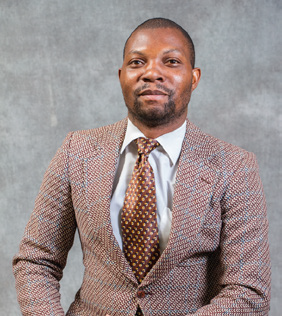“We have sleepwalked past the place of no return, jeopardising the health and safety of everyone on this planet. Do we really want to be remembered as the generation that buried its head in the sand that fiddled while the planet burnt?” –
Antonio Guiterres
Madrid, Spain was the venue of the 25th Conference of Parties (COP) meeting of the signatories of the United Nations Framework Convention on Climate Change (UNFCCC). Highly expected to deliver greater commitments on greenhouse gas emissions reductions; the COP 25 meeting ended in a stalemate as parties could not agree on greater commitments to reducing emissions. This was a missed opportunity due to the fact that several countries are already bearing the brunt of climate change.
In his remarks, the United Nations Secretary General Mr Antonio Guiterres, mentioned that the world had reached a place of no return as far as climate change is concerned, “We have sleepwalked past the place of no return, jeopardising the health and safety of everyone on this planet. Do we really want to be remembered as the generation that buried its head in the sand that fiddled while the planet burnt?”
The world is trying to limit temperature rise to below 1.5 degrees Celsius when compared to pre-industrial levels, but with the outcome of COP 25 in Madrid in December 2019, it is not clear whether this will be achieved or the world will further plummet into deeper effects of climate change.
The European Union has pledged to achieve carbon neutrality by the year 2050 in a move that looks promising but should be followed by concrete actions to reduce emissions. The mixed feelings and reactions from the COP 25 meeting in Madrid underline the fact that the world is at the crossroads. Reduced food security, threatened livelihoods, low rainfall, extreme weather events, rising temperatures and health complications continue to worsen due to the burgeoning climate crisis.
Thorny issues remain as far as climate change is concerned including regulation of carbon markets and prices of carbon as stipulated in Article 6 and these will be discussed and carried forward to future negotiations. Unfortunately due to the COVID-19 pandemic, the COP-26 which was scheduled for Glasgow, Scotland has been postponed until further notice.
Zimbabwe is a signatory of the United Nations Framework Convention on Climate and sent a high powered delegation to the COP 25 the event including Honourable Minister of Environment, Climate Change, Tourism and International Trade, (Hon) Nqobizitha Mangaliso Ndlovu. The Climate Change Management Department (CCMD) directed by Mr Washington Zhakata also represented the country exceptionally well at this global event including showcasing the efforts being done by stakeholders in mitigating and adapting to climate change. Side events were also coordinated by stakeholders such as Environmental Management Agency, UNDP and Youth Groups.
As the climate discussions continue, it is necessary to act locally by stepping up work on Nationally Determined Contributions (NDCs) and promoting a Low Emission Development Strategy (LEDS). As we enter the new decade starting in this year 2020, raising ambition on climate mitigation and adaptation is the only way to save humanity from the non-reversible effects of climate change. Recurrent droughts, floods and heat waves experienced in some parts of Southern Africa demonstrate the fact that climate change is a reality. Action must happen today as we may have no tomorrow. The COVID-19 pandemic also presents new intricacies in how we should fight climate change in a socially distanced society.
Author
-

Tawanda Collins Muzamwese is the Editor in Chief of the Green Business Gazette Magazine. He is is an international consultant in sustainable business development with massive experience in training, consulting and auditing. He has facilitated capacity development in more than 100 enterprises drawn from over 30 countries. He is the founder of the sustainability think-tank called Toxiconsol Consultancy t/a African Sustainability Consultants. He is the Editor in Chief of the Green Business Gazette Magazine. He is a consultant and business coach with over 13 years experience. Tawanda is a Management Systems Consultant working on promoting development and implementation of ISO Standards (ISO 14001:2015, ISO 9001:2015 and ISO 45001:2018) in both developed and developing countries. With his inspirational and pragmatic writing style he has written cutting edge books including: 1) How to grow a Side-hustle into a viable business - Overcome Salary Dependency 2) The Leading Consultant: How become an authority in your professional field 3) Step-by-Step Guide to implementing Safety, Health, Environment and Quality Management Systems 4) Stepping on Higher Perspectives: Greatness Tips Motivational Series 5) Sustainability Guidebook for Boards and CEOs: Leading from the front Tawanda writes about sustainability, motivation, safety, health, environment and quality management. His books are relevant to both developed and developing countries. With practical approaches and case studies, he provides incisive insights into entrepreneurship. His philosophy is based on the premise that every human being has potential to make a significant difference in their lifetime. He writes books on taking personal responsibility for progression in life. He motivates entrepreneurs to implement income generating projects and determine their own financial destiny. He also motivates companies to take up sustainability initiatives. A start-up coach, public speaker, environmentalist, safety, health and quality management expert, Muzamwese bridges the gap between theory and practice through building capacity and sharing practical case studies in his books.
View all posts



